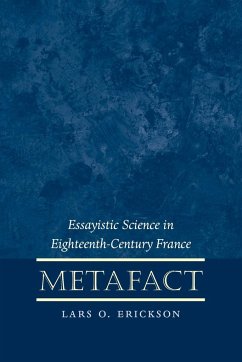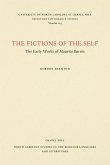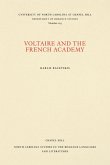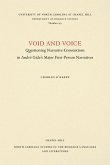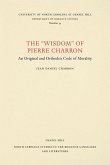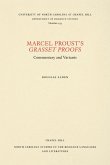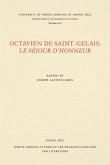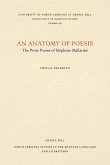Why is science often considered the opposite of literature? Lars O. Erickson examines the relationship between these two fields in eighteenth-century France and finds that the major intellectual and scientific transitions of the period can be better understood by paying attention to literary developments, particularly in genres not traditionally associated with learned societies. Erickson examines works by Diderot and Maupertuis and identifies a shared renegade spirit he calls "essayistic science." He demonstrates how the essay, a vague genre characterized by an openness to lay audiences, a self-reflective character, and an insistence on broad overviews, was used to react to a crisis in knowledge and to question the production of facts. Consequently, essayistic science does not deal with facts but with "metafacts," breaking down scientific traditions and bridging objective science with subjective literature.
Bitte wählen Sie Ihr Anliegen aus.
Rechnungen
Retourenschein anfordern
Bestellstatus
Storno

